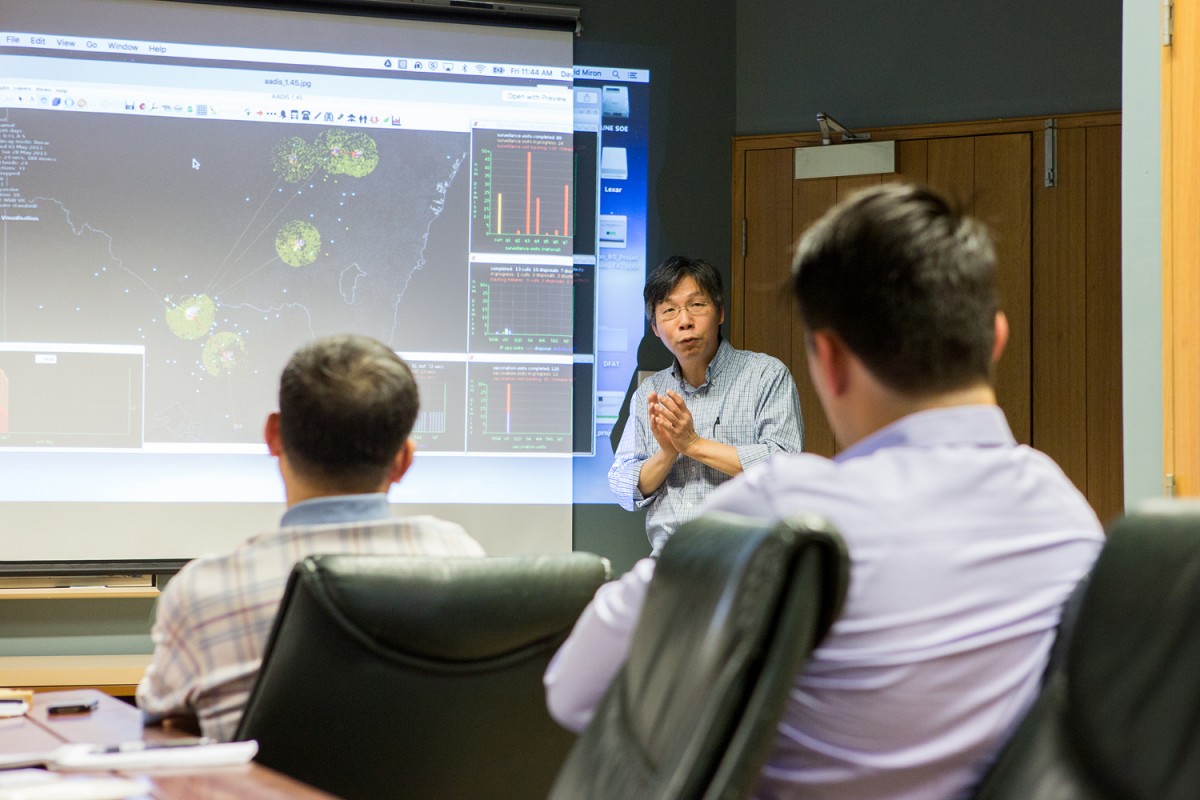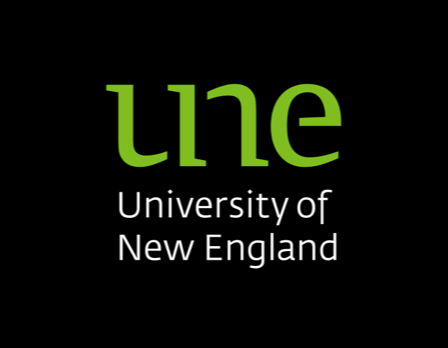“We are in the digital age and it affects every aspect of our lives, helping us solve our problems in many ways. Somebody said computers are dumb, but they are really good at following instructions. When they [follow] the instruction you gave them, they do it perfectly and marvel you…That is what computer scientists do and that is why I like it.” – Ermias Zerazion, BA Computer Science
Set up in 1938, the University of New England (UNE) is the oldest regional university in Australia. Set in the city of Armidale, New South Wales, UNE’s northern campus is nestled in an attractive rural bushland setting just five kilometres northwest of the city centre.
The institution currently offers more than 200 courses in broad and varied disciplines, teaching, leading and inspiring 20,000 students at the undergraduate, postgraduate, and higher research level.
Having been in existence for nearly 80 years now, UNE has carved quite a name for itself in the higher education sector; it is reputed to be among Australia’s top schools for great teaching and training, and is known for its high-quality research, positively impacting rural and regional populations. In fact, UNE has been called the nation’s ‘university of choice’ for research into regional issues of global significance.

The School of Science and Technology in particular, perfectly blends the fields of pure and applied science – disciplines that provide the explanations and predictions regarding life and the wonders of the universe. From chemistry to physics, human biology to physiology, molecular and cellular biology, mathematics, computer science, statistics, sports studies and pharmacy; these subjects form the foundation of everything we know about life.
A particular strength of the school’s activities lie in the realm of SMART technologies. We are fast-approaching a time where every so-called ‘SMART’ device will link to the Internet of Things (IoT), a network that’s expected to connect 25 billion devices worldwide by 2020. On top of boosting convenience and quality of life, these tools will be used to advance ground-breaking practice in the sustainable revolution, with UNE’s School of Science and Technology assisting with the charge.
The school’s faculty, staff and students are dedicated to implementing manageable, accessible and above all sustainable technologies in rural communities.
“Our school is committed to research and development around SMART Science and SMART Living,” the faculty website notes. “We strive to initiate, and drive key research areas…”

UNE’s SMART Farm is the prime example of this in action. Building on the institution’s global prominence in Precision Agriculture, the school has transformed ‘Kirby-Newholme’, a 2,900ha site and part of UNE’s Armidale commercial farms, located 10km northwest of the campus.
Through observations and activities conducted here, the institution refines and exhibits the most cutting-edge technologies for enhancing productivity, environmental sustainability, safety, workflow and social/corporate support networks of Australian farms. Ultimately, the pasture represents an ‘instrumented’ research lab and diagnostic landscape, the likes of which you’d be hard-pushed to find anywhere else in the world.
The SMART Farm Innovation Centre looks down on the plot from its grassy knoll, feeding the concepts, graft and vision that gives this project life. Linked by the AARNet and the national broadband network (fibre, terrestrial, wireless and satellite), the SMART Farm – principally used for grazing – is a pioneering site for the testing of new technologies. As a classroom, it is high-tech and engaging, granting both students and the community access to the latest data streaming from a range of field, animal and machinery sensors.
And data is another field in which UNE makes waves. CASI (Computation, Analytics, Software and Informatics) is a bold, transformational change that solidifies and strengthens the university’s data capabilities to deliver top-rate results in both teaching and research. This unique strategy provides a platform for students to forge influential ties with industry and government, offering a state-of-the-art and visible data science hub for internal and external collaboration that crosses subject disciplines.

CASI elevates and empowers student research projects that produce voluminous, high-velocity and volatile data, allowing them to harness and manage the collated information through data science, computationally-efficient statistics and smart analytics, kick-starting its evolution into impactful knowledge bites of that can be used by end-users and researchers. These outcomes can then be sculpted into digital solutions that prove significant in industry and beyond.
These results support increased engagement with major stakeholders outside of academia, enabling relationships that are mutually-beneficial due to considerable knowledge transfer, as well as the exchange of methods and technologies.
The program will promote a similar structure and delivery of an e-university – and the best thing is that it’s not just students of Science and Technology who will benefit from its introduction. Business students, for example, will be able to interact with mathematical simulations and models, navigating trillions of gigabytes of data drawn from powerful sources like real-time markets.
Students here will also gain the advantage of increased industry projects, occurring in any location nationally and globally. So, while computer science students pursue a mandatory capstone venture, each one working to become eligible for accreditation from the Australian Computer Society, CASI will facilitate and multiply this and similar projects across diverse fields of study.
A plethora of future employment roles will either create, manage or utilise data in far-reaching, varied ways. By enforcing unique, data-focused learning strategies like CASI, UNE is ensuring that graduates leave readily-instilled with the requisite training, skills and attributes that will allow them to succeed in a complex knowledge economy.
Follow the University of New England on Facebook, Twitter, YouTube and LinkedIn
Liked this? Then you’ll love these…
3 Universities that excel in Computer Science education
Bridging the skills gap: Universities that produce enterprising Life Science grads











